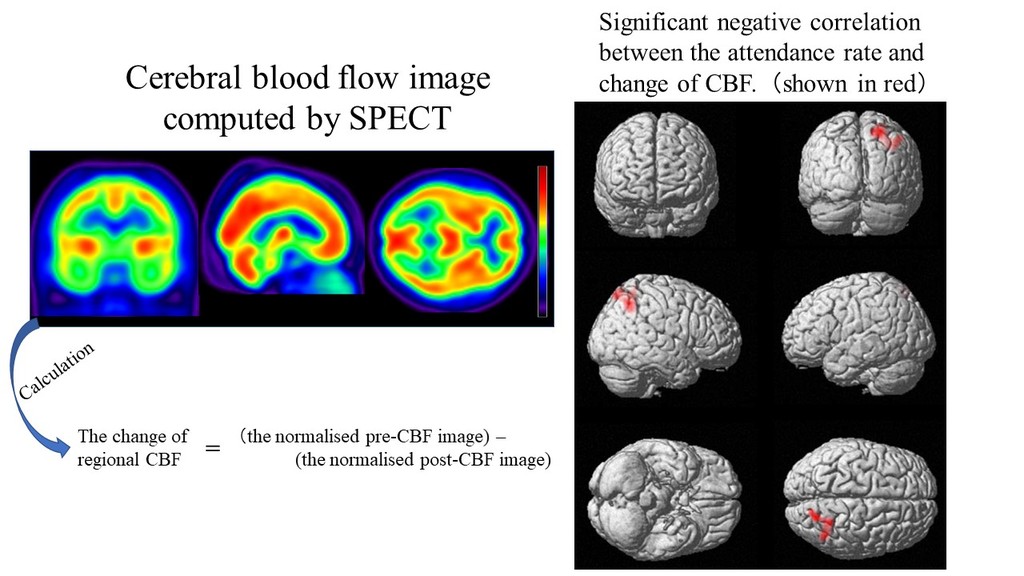・There was a significant negative correlation between the attendance rate and the reduction of regional cerebral blood flow (CBF) in the right parietal region. The significant negative correlation suggests that these non-pharmacological interventions ameliorated the reduction of CBF over time.
・Our program may prevent the vulnerability of the parietal region to neurodegeneration induced by amyloid β-protein accumulation.
・Our results would suggest that the important point of the CIDC program was not the number of attendances but efficient attendance.
Abstract
Mild cognitive impairment (MCI) is a prodromal phase of dementia and is considered an important period for intervention to prevent conversion to dementia. This study examined whether a multicomponent day-care program would have beneficial effects on the longitudinal changes of CBF in MCI patients.This program had the following six components: (i) exercise training (accounting for 40% of the total program); (ii) cognitive training (20%); (iii) music therapy (20%); (iv) art (12%); (v) aromatherapy (4%); and (vi) recreational events (4%).Participants were 24 patients with MCI attending a day-care program; they underwent two 99mTc-ethyl cysteinate dimer single photon emission computed tomography scans during the study period. We evaluated the association between the changes of regional cerebral blood flow and the attendance rate.There was a significant negative correlation between the reduction of regional CBF in the right parietal region and the attendance rate. We found no significant relation between the baseline CBF images and the attendance rate.Our results suggest that continuous participation in a multicomponent day-care program might prevent reduction in brain activity in patients with MCI.
Benefit
This approach may help lower the barrier to early detection of cognitive impairments in a variety of settings and populations.
Market Application
The Long-term multicomponent program that included exercise, cognitive interventions, and music therapy.
Publications
https://onlinelibrary.wiley.com/doi/full/10.1111/psyg.12847
Other
https://www.youtube.com/watch?v=97OlX0PZzO4

